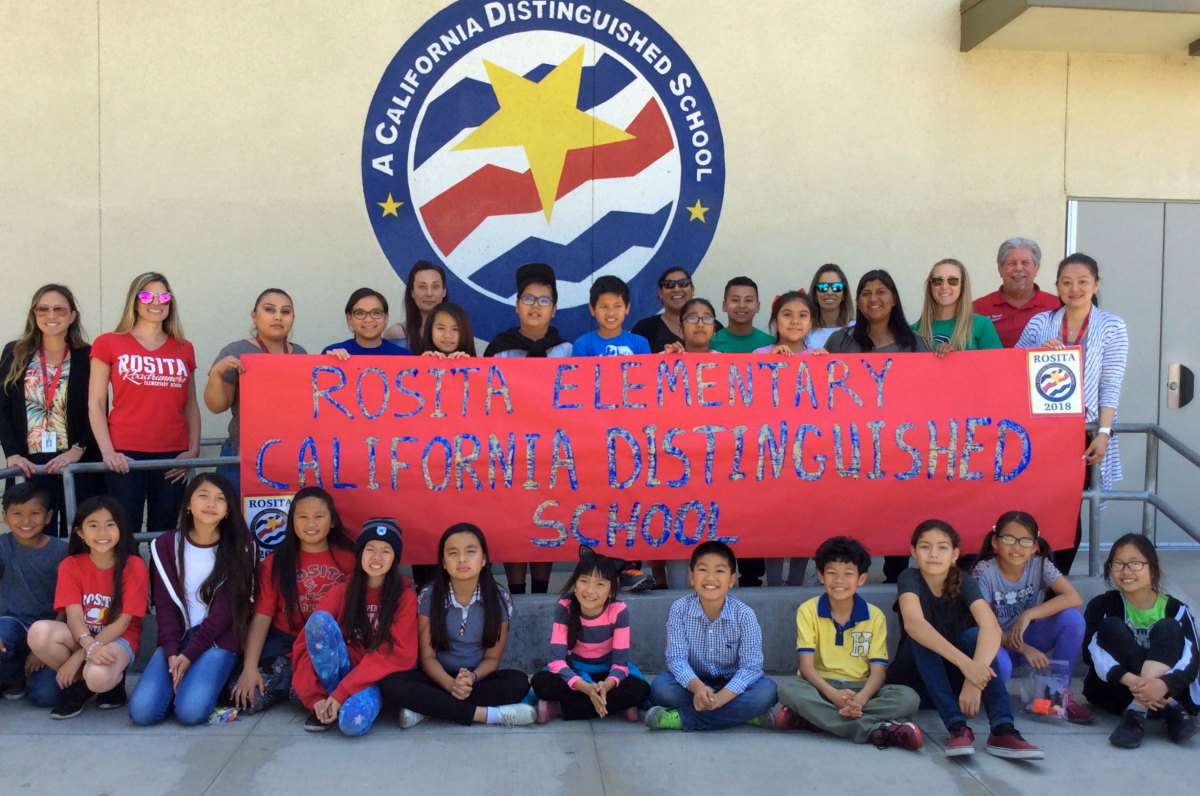
Last week, state education officials announced the selection of 43 Orange County campuses as California Distinguished Schools.
The designation, revived after a three-year absence, has long been considered the top honor for public schools in California, rewarding sites based on their performance as well as their progress while working with low-income students, English learners and other subgroups.
But it goes beyond mere recognition. Those that earn the Distinguished School title are expected to share their signature practices, allowing them to be replicated elsewhere.
In that spirit, the OCDE Newsroom reached out to local districts and asked them about the successful strategies employed by their California Distinguished Schools. Here are their responses, some of which are edited for length:
CENTRALIA ELEMENTARY
Los Coyotes and Dysinger elementary schools
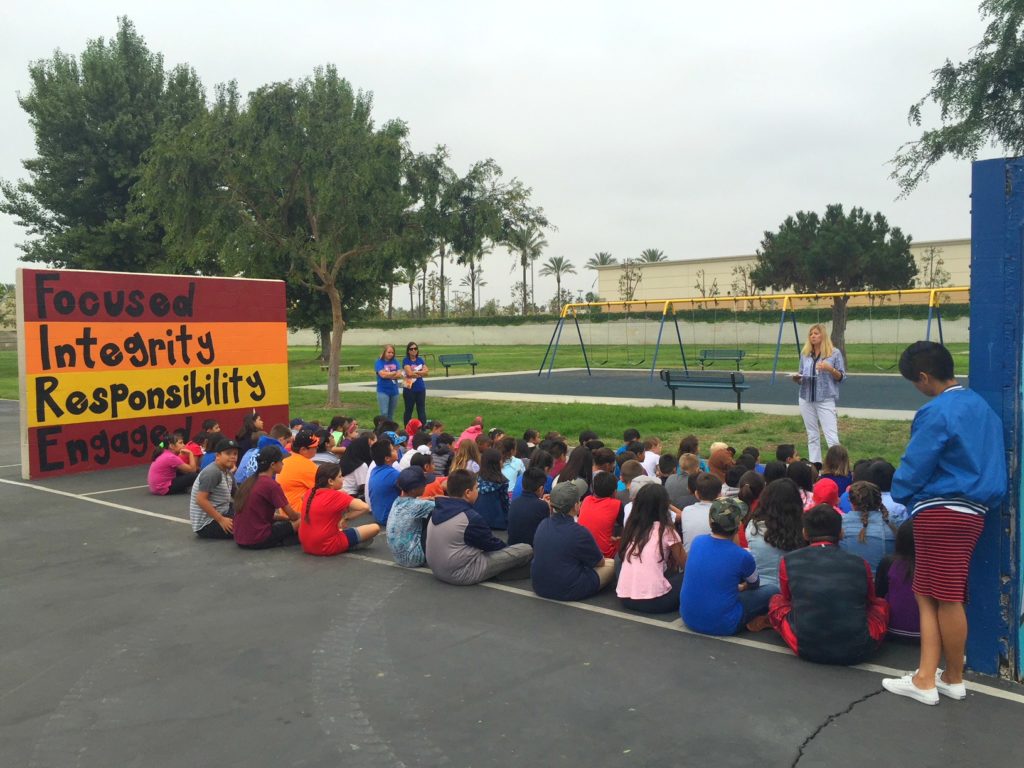 “Both Los Coyotes School and Dysinger School have implemented a Multi-Tiered System of Support (MTSS), which is a system designed to meet the social/emotional needs of individual students, putting supports in place that prevent the emergence of problems that would interfere with learning. This is accomplished through consistent data collection and appropriate school-wide interventions. Tier 3 is targeted, intensive individual interventions for high-risk students; Tier 2 is small group and/or individual strategies for at-risk students; and Tier 1 is universal school-wide support. These programs are inclusive of Response to Intervention (RTI) and Positive Behavioral Interventions and Supports (PBIS). These systems support high academics and positive school climate. High level community involvement and support is also a signature practice at both of these schools.”
“Both Los Coyotes School and Dysinger School have implemented a Multi-Tiered System of Support (MTSS), which is a system designed to meet the social/emotional needs of individual students, putting supports in place that prevent the emergence of problems that would interfere with learning. This is accomplished through consistent data collection and appropriate school-wide interventions. Tier 3 is targeted, intensive individual interventions for high-risk students; Tier 2 is small group and/or individual strategies for at-risk students; and Tier 1 is universal school-wide support. These programs are inclusive of Response to Intervention (RTI) and Positive Behavioral Interventions and Supports (PBIS). These systems support high academics and positive school climate. High level community involvement and support is also a signature practice at both of these schools.”
CYPRESS ELEMENTARY
Landell Elementary School
“At Landell, we expect our students to be the leaders of the 21st century. As such, it is our responsibility to prepare them for the STEM careers of tomorrow. It is this belief system that gave birth to our model STEM program, which is built on a foundation of human capital. By cultivating strong partnerships among parents, students, staff and business leaders, we’ve engaged our entire school community in creating a robust STEM program that includes hands-on, project-based learning; computer coding; robotics; engineering; and environmental science in a newly constructed, dedicated STEM lab. These experiences, coupled with our Outdoor Classroom, Landell TV and annual STEM Fest, provide a real-world context to make learning meaningful.”
GARDEN GROVE UNIFIED
Cook Elementary School
“Cook Elementary School’s model practice is a strategic approach around ‘Instructional Leadership Team Guiding a Culture of Growth.’ Cook’s small learning community process of collaboration and shared leadership drives critical decisions that impact the entire staff in implementing effective instruction, increasing student achievement by meeting the needs of all learners. It has fostered an academic environment where students love learning and accomplish their goals through hard work. The ILT implemented the roll-out of the Growth Mindset with staff, students and parents supporting the full embrace of the new California State Standards. Growth Mindset is trained with intentionality in all facets of our community. The motto, ‘I can and I will,’ is celebrated and rewarded. Scholarly habits are clearly defined and are embedded into the academic life of our campus. Cook is a community of learners where the growth of the whole child is expected and celebrated by all.”
John Murdy Elementary School
“At Murdy, we created a unique culture that infuses technology across all grades and content areas to ensure students have the academic, personal and digital literacy skills needed for success. All students gain experience with a variety of technology, including tablets, green screens, audio and video recording and editing equipment, and 3D printers. Through these tools students are motivated to explore new ways of thinking and inspired to learn through creating authentic products. Our teachers and staff realize that for students to be successful in this digital age, they must be just as proficient with technology as with reading and writing.”
Zeyen Elementary School
“Zeyen’s model practice is Stakeholder Unification. Through increased teacher advocacy, parent involvement and inclusivity, Zeyen has shown exceptional growth on measures of academic success. Purposeful, structured weekly teacher collaboration in grade level spans focuses on improving student achievement. Parent involvement in PTO, Parents in Action and the English Language Advisory Committee have helped unify all cultural groups and keep a focus on student growth. Inclusive practices including mainstreaming and blended learning opportunities ensure that students with disabilities are growing and learning alongside their general education peers. It takes a strong, united team to reach our goals.”
IRVINE UNIFIED
Deerfield Elementary School
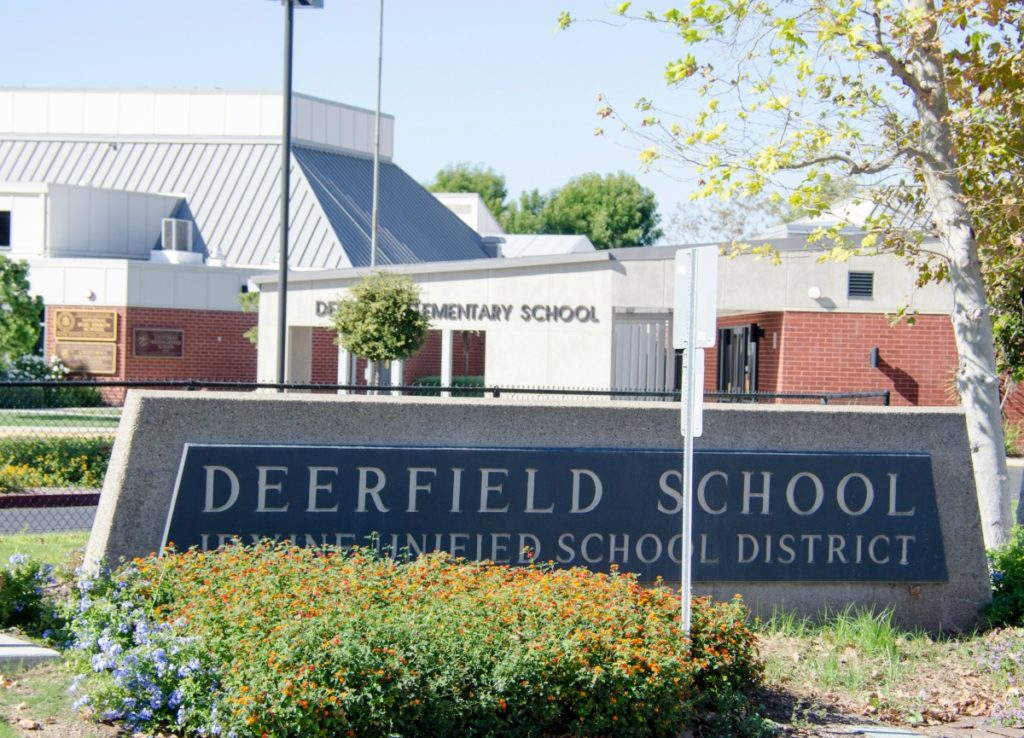 “Deerfield’s staff believes a quality education includes strong academic and social/emotional support, as well as leadership development for its students. Deerfield’s signature practice extends its Positive Behavioral Interventions and Supports System (PBIS) to include leadership development with its unique ‘Flock Together’ program where students learn about the importance of serving their school, local and global communities. Within the last year, Deerfield students raised money for WE.org to improve water supplies in Kenya, supported Irvine’s local Second Harvest Food Bank, and had the honor of raising the most support of any school for the Casa Youth Shelter of Orange County. Deerfield students also raised money to install a ‘buddy bench’ to promote friendship and inclusion on campus and this year they are redoing the school’s PBIS kick-off video.”
“Deerfield’s staff believes a quality education includes strong academic and social/emotional support, as well as leadership development for its students. Deerfield’s signature practice extends its Positive Behavioral Interventions and Supports System (PBIS) to include leadership development with its unique ‘Flock Together’ program where students learn about the importance of serving their school, local and global communities. Within the last year, Deerfield students raised money for WE.org to improve water supplies in Kenya, supported Irvine’s local Second Harvest Food Bank, and had the honor of raising the most support of any school for the Casa Youth Shelter of Orange County. Deerfield students also raised money to install a ‘buddy bench’ to promote friendship and inclusion on campus and this year they are redoing the school’s PBIS kick-off video.”
LOS ALAMITOS UNIFIED
Lee Elementary School
“Lee Elementary School is committed to high achievement for every student through a balanced, rigorous and integrated educational experience. We believe through appropriate enrichment and interventions, all students can meet or exceed standards. Through the Reading Workshop model of instruction and our on-site Intensive Reading Lab, we provide children with access to engaging, meaningful instruction.”
Rossmoor Elementary School
“Reader’s Workshop has proven to be a powerful addition to Rossmoor’s balanced literacy practices. The steady and consistent growth of ELA achievement over the past three years, as measured by the CAASPP (California Assessment of Student Performance and Progress), is directly linked to the workshop model. In addition, our staff has also adopted a growth mindset approach, modeling risk taking which has benefited our students greatly. As a result, we see our students willing to take risks in their learning, challenging themselves to read complex texts, and having the stamina to progress as readers.”
OCEAN VIEW
Circle View Elementary School
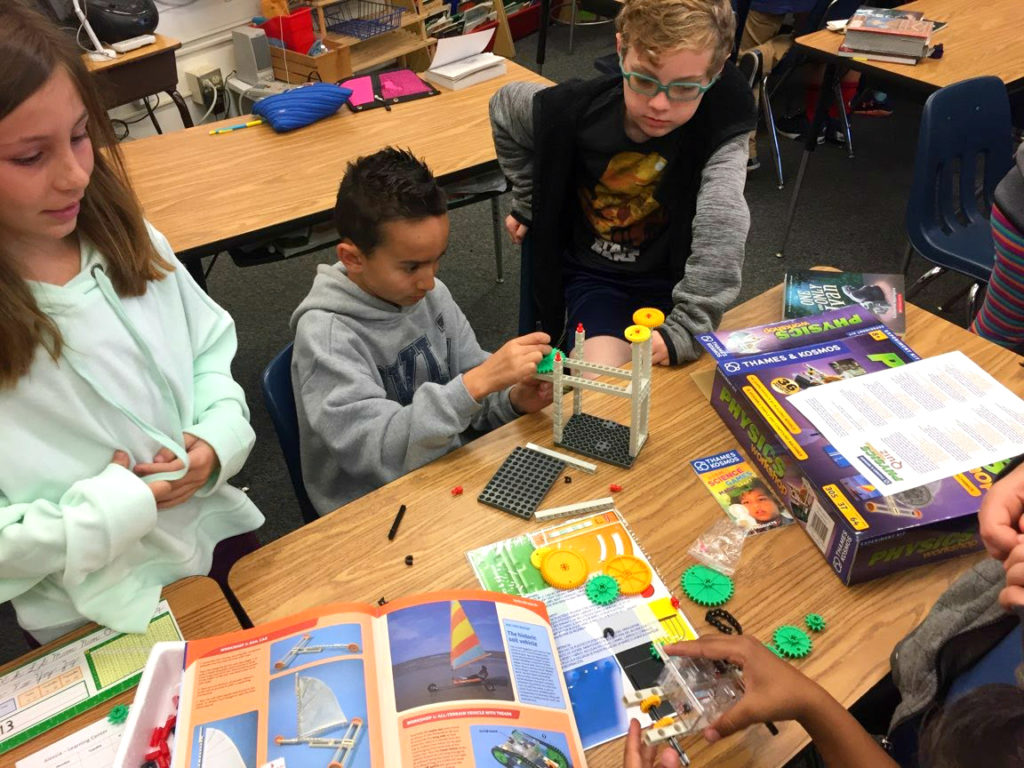
“Visitors to Circle View observe evidence of “Authentic Literacy” in all classrooms. The progression of skills and knowledge is evident as you proceed through the grade levels. Throughout the three-year process of implementing best practices in Authentic Literacy, the teachers are able to guide every child to a level of thinking like a disciplinarian. Even students in kindergarten are able to produce writing that includes text evidence to support their answers and opinions to various prompts.”
Star View Elementary School
“At Star View Elementary, our best policies and signature practices stand on a foundation built by the Ocean View School District. Star View’s model practice is our use of Authentic Literacy across all grade levels and curricular areas. OVSD’s Strategic Plan states we will ‘strategically and intentionally focus on learning for all students.’ This overarching vision provides the foundation for our Local Control Accountability Plan (LCAP) development. The LCAP emphasizes ‘providing rich and relevant materials, resources, instruction and engagement that require students to apply knowledge, skills and concepts to a production level, as students are expected to generate products to demonstrate basic and advanced proficiency levels. Students, teachers and parents request more hands-on learning through real-life problem solving, using a variety of technology resources and tools in order to enhance student learning from the classroom to a regional, state, national and international perspective.’”
ORANGE UNIFIED
Crescent Elementary School
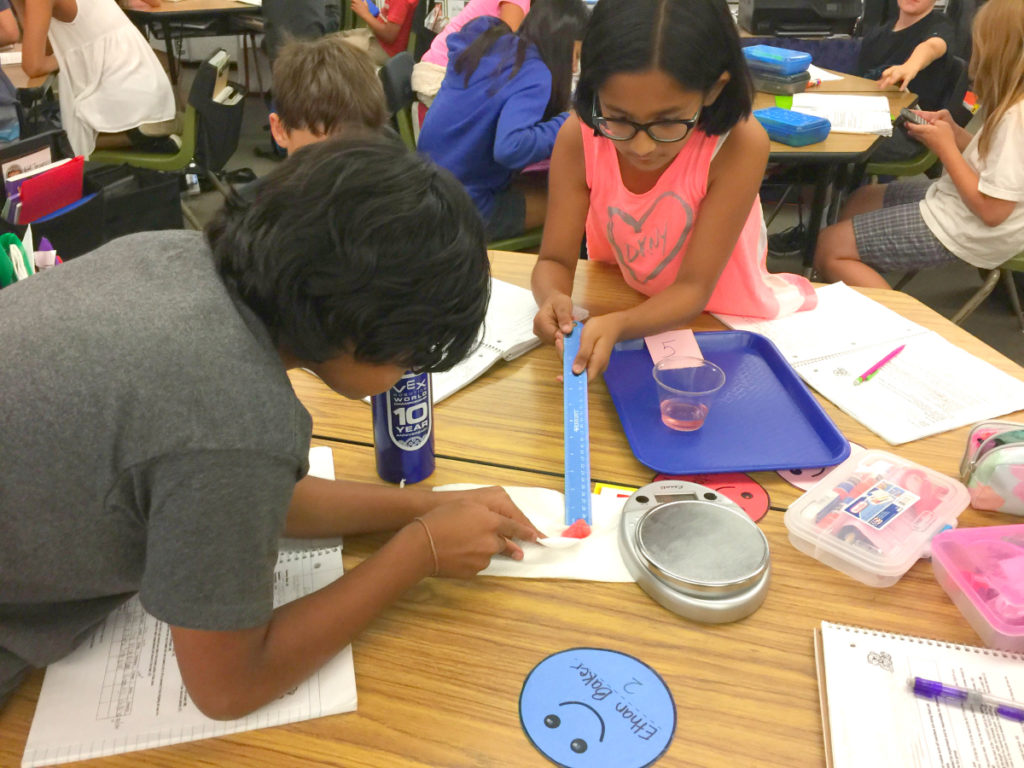 “At Crescent Elementary, our focus is on teaching the Whole Child as described by the Association for Supervision and Curriculum Development (ASCD). We see our school’s diversity as a strength, preparing children for the world they will work in and live. We provide a strong, integrated curriculum developing a balance of skills, knowledge and understanding. We empower our students to take responsibility for their learning, preparing them for the demands of the future. The collaboration of all stakeholders has resulted in high academic achievement, student attendance, character and community building — further evidence that Crescent succeeds in providing a healthy, safe, engaged, supported and challenged student.”
“At Crescent Elementary, our focus is on teaching the Whole Child as described by the Association for Supervision and Curriculum Development (ASCD). We see our school’s diversity as a strength, preparing children for the world they will work in and live. We provide a strong, integrated curriculum developing a balance of skills, knowledge and understanding. We empower our students to take responsibility for their learning, preparing them for the demands of the future. The collaboration of all stakeholders has resulted in high academic achievement, student attendance, character and community building — further evidence that Crescent succeeds in providing a healthy, safe, engaged, supported and challenged student.”
PLACENTIA-YORBA LINDA UNIFIED
Glenknoll Elementary
“Glenknoll Elementary School’s commitment to the development of a positive learning environment continues to grow and be one of the cornerstone pieces to student success. We have continued to enhance our Positive Behavior Interventions and Support (PBIS) program over the past few years. Through our program, we have committed to cultivate the emotional health, safety and well-being of students through a safe and respectful environment. Our school-wide expectations encompass the acronym ‘PAWS,’ representing four behaviors that are encouraged around campus. These include ‘Practice your personal best,’ ‘Act responsibly,’ ‘Work and play safely’ and ‘Show respect.’ Each of those three tiers include positive support through the use of encouraging interactions, reward cards for modeling good behavior and student leadership opportunities. The PBIS team is also available to teachers on campus for ‘Bring Your Own Behavior’ sessions to brainstorm strategies to help specific students. Our PBIS system is designed to meet the needs of all learners and includes positive rewards at every tier that include school spirit assemblies, monthly Ticket Free Friday’s, reward cards, PAWS store and a check in/check out system for those that might need more regular support. This year, we have included training and implementation of a Peer Assisted Leadership (PAL) Program that trains students in leadership and conflict resolution.”
Golden Elementary School
“Engaging all learners requires targeting clear standard-based objectives and includes measurable outcomes. Whether it’s a lesson from our adopted math textbook or a project-based learning activity such as building a zoo in our sixth-grade classrooms, students excitedly thrive. Daily differentiation may include scaffolds for lessons, movement of students into a math class that challenges or supports, teacher math class notes emailed home, websites with video links and assignments, and modifying of word problems to increase rigor. An itinerant math teacher provides accelerated math instruction to sixth-graders in our 6/7 math class and also allows us to provide a 7/8 math class on our elementary campus. Teachers regularly supplement instruction from our core text using sources such as Cognitively Guided Instruction (CGI) in lower grades and Extending Children’s Mathematics (ECM) in upper grades. Chromebooks purchased by PTA allow regular access to publisher websites where students complete homework, take quizzes and access resources to get immediate feedback and tutorials. When data reveals students need additional support, teachers in grades one through six provide instruction that extends beyond the school day with our innovative after-school program. Teachers provide small group (10 students), intensive six-week sessions two to three times a year to target basic skills. Funding for this after-school intervention comes from our school’s supplemental funds as prioritized in our school’s LCAP. The goal is to extend these identified students’ day for an hour to allow them additional opportunities to master mathematical concepts. These signature practices have a proven success, with 86.78 percent of all students in grades three through six meeting or exceeding math standards as measured on the 2017 Smarter Balanced Assessments.”
NEWPORT-MESA UNIFIED
Newport Coast Elementary
“Newport Coast Elementary received the Distinguished School Award for its outstanding Positive Behavior Interventions and Support (PBIS) model program, which supports academic achievement of all students, refines the implementation of character education programs, increases attendance, and maintains a low number of suspensions. PBIS is a proactive approach that addresses and reduces disruptive behaviors through multi-tiered interventions that teach students desirable behaviors and reward students for making good choices. The program has reduced the number of behavioral issues on campus and provided more effective in-classroom learning time. The increase in engaged academic activities has improved the academic performance of all students. Results show a steady overall growth in academics, as measured by district benchmark assessments, improved report card grades and teacher observations.”
Sonora Elementary School
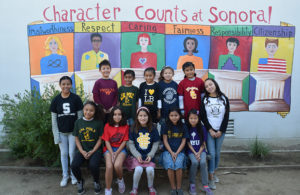 “Sonora Elementary received the Distinguished School Award for its No Excuses University program. Sonora Elementary was accepted into the No Excuses University (NEU) network in 2010. The NEU model is a national program based on six exceptional systems which include: Culture of Universal Achievement, Staff Collaboration, Alignment of State Standards, Data Management and meaningful Student Interventions. Current assessments confirm that the NEU model is highly effective for Sonora Elementary students. Those struggling to perform at grade level are supported by a collaborative Response to Intervention program, and/or tutoring. Intervention teachers also provide tailored instruction to meet the unique needs of English learners. State testing results show that Sonora Elementary students, including English learners and economically disadvantaged students, continually exceed district, county and state averages for meeting or exceeding standards.”
“Sonora Elementary received the Distinguished School Award for its No Excuses University program. Sonora Elementary was accepted into the No Excuses University (NEU) network in 2010. The NEU model is a national program based on six exceptional systems which include: Culture of Universal Achievement, Staff Collaboration, Alignment of State Standards, Data Management and meaningful Student Interventions. Current assessments confirm that the NEU model is highly effective for Sonora Elementary students. Those struggling to perform at grade level are supported by a collaborative Response to Intervention program, and/or tutoring. Intervention teachers also provide tailored instruction to meet the unique needs of English learners. State testing results show that Sonora Elementary students, including English learners and economically disadvantaged students, continually exceed district, county and state averages for meeting or exceeding standards.”
SANTA ANA UNIFIED
John Muir Fundamental Elementary
“John Muir Fundamental Elementary School, a California Distinguished School from the Santa Ana Unified School District, is reshaping its culture through its 21st Century Scholars Model Program. This model was designed to inspire, engage and transform students into college-bound, lifelong learners. STEM, AVID and differentiated literacy strategies integrated across the curriculum along with a strong inclusive positive school climate are in place to ensure that students acquire the knowledge and capacity to become creative, critical thinkers with the cultural understanding and civic values needed to be responsible global citizens.”
Jim Thorpe Fundamental Elementary
“Jim Thorpe Fundamental Elementary School is raising the academic bar for all students through its Pathway to Rigor, which includes school-wide implementation of the Elementary AVID program. Student learning is being transformed through a rigorous instructional program that fosters college and career readiness through a strong emphasis on success and organizational skills and comprehensive instruction on writing and reading to learn, along with inquiry and collaboration.”
